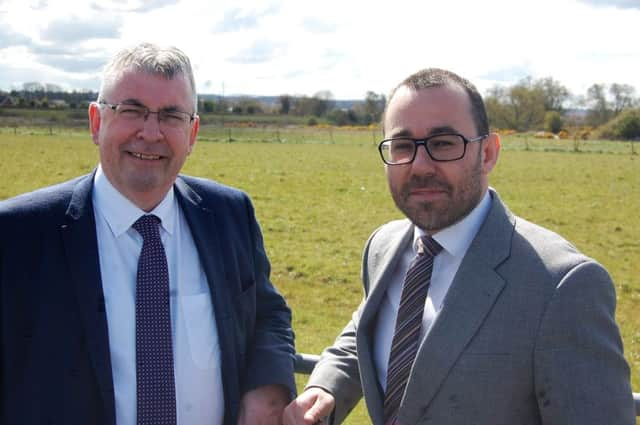'˜Don't partake in unprotected farming success'


During the time I have known David and Simon, a sizable dairy farm was followed by a decision to expand into poultry and subsequently wind farming.
On the back of their accountants recommendation two years ago a decision was made to form a limited company of which both David and Simon are 50% share directors.
Advertisement
Advertisement
David (50) and Simon (51) are both married and have young families. Although they work long hours they enjoy the rewards that any successful business allows. David and Simon are employees of their own company and draw salaries and dividends depending, on how profits preform. Last year during their bi annual review I highlighted the fact that although they had their mortgage debt covered with life assurance I felt that they were both partaking in “unprotected success”.
Along with their mortgage protection the brothers had taken out an extra £150,000 of life assurance each to ensure that their spouses and children would have some cash available in the event of premature death. However I felt it necessary to point out that in the event that either died that the deceased’s wife would likely step into their husbands shoes as 50% director of the farming company. They would have equal voting rights and could command equal share of the profits just as when their husband was alive.
The brothers seemed quite shocked by this as neither had even considered how working with a sister in law might prove problematic, given the nature of farming and the fact that neither spouse had much experience in running a farming business.
I explained how I would attempt to put in place a solution to a problem they had never considered. I went on to point out that before they paid their existing life assurance premiums, they had to pay national insurance and tax on the earnings they received. I suggested that they replace their personal life assurance with what is know as Relevant Life plan.
Advertisement
Advertisement
I explained how the company could, given their ages insure them for an amount up to 20 times their earnings i.e. £50,000 x 20 which would be £1m each. The premiums would be treated as a business expense for tax purposes and not as a benefit in kind. Given that there would be no national insurance or tax paid before any premiums were paid, meant that the cover would be 40% cheaper than if they paid it from their own account.
I also explained that on death the benefits would be subject to a special Relevant Life Policy Trust and that these benefits would both be free of income and inheritance tax and not form part of either brother’s estate. Two ten year plans of £1m cover, lead to premiums paid by the company of £112 and £118 each month.
Each brother joined the others spouse by becoming trustees of the special trust. As a result of creating these Relevant Life trusts legal arrangements were made so that each brother on death proposed to leave their company shares to each other knowing full well that either family would be well compensated should David or Simon die during next ten years. If the company was still operating by then the brothers could decide to reinsure again. Having discussed the term both brothers agreed that if the business continued to be successful that they would likely retire and sell the business.
For further information on Relevant Life contact Aodh or Glenn on 028 9262 2910.